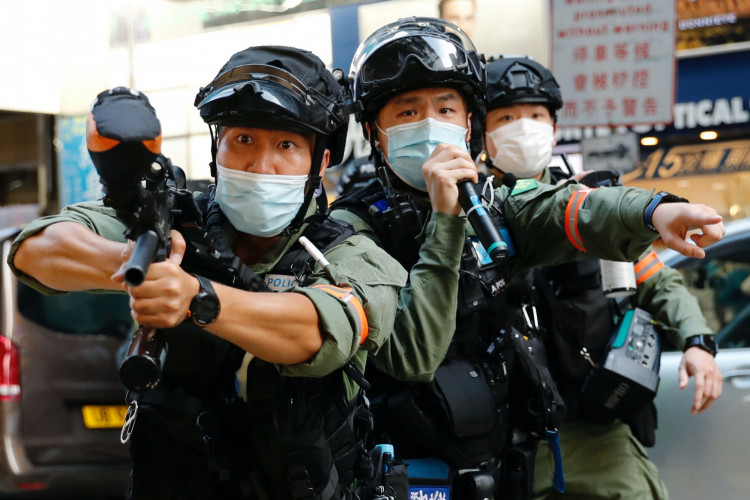A Hong Kong primary school teacher has lost his teaching certificate after being accused of sharing pro-independence materials with students, authorities say.
The man was stripped of the registration needed to work as a teacher and has been barred from the profession for life according to local news reports. The school's principal and deputy head face reprimands.
"Schools, universities, social organizations - including the news - and the internet, in the Special Administrative Region, must promote education and publicity on national security," Chief Executive Carrie Lam said at her daily news briefing Tuesday.
Lam said universities' had an "undeniable duty" to uphold the national security law and "if schools are unable to implement the mandate, enforcement authorities will take care [of the matter]."
No further details were given on the repercussions for failing to comply, but the Minister of Education is expected to speak with university presidents soon about the matter.
This is the first time a teacher has lost certification for allegedly advocating independence - an activity which the government says violates the Basic Law.
The teacher, whose name has not been released, is currently fighting his removal in court with the help of the Professional Teachers' Union, which called the authorities' actions "unreasonable and unjustifiable."
Hong Kong's Education Bureau received nearly 250 protest-related complaints about primary and high school teachers between June 2019 and August. Investigations into 204 cases have been completed - resulting in 33 reprimands and one loss of teaching registration.
Higher education is likewise coming under threat from the new national security laws as authorities crack down on what has traditionally been pro-democratic.
Rewriting History
As teachers are coming under pressure to stay within the bounds of government-approved lessons, teaching materials in the humanities are being adapted to a new reality.
Beginning in August, some local textbook publishers started removing references to the concept of separation of powers as well as civil disobedience, instead emphasizing the legal consequences of such activities.
This trend is likely to intensify as curriculums concentrate on governance and meet greater scrutiny from the Education Bureau.
A bureau-authorized task force concluded in September that Liberal Studies, a high school class first introduced in 2009 to help students think critically about Hong Kong's past and present, was a hindrance preventing students from focusing on science-related courses.
This verdict set alarm bells ringing for many teachers in the city, who fear greater government oversight at the expense of objective and accurate lessons, some said. "The Education Bureau may use the contents of the taskforce report to strengthen its control over general education, especially the contents of textbooks to avoid discussions of recent events," the Hong Kong Professional Teachers' Union said in a statement in September.
The union is looking to make a stand against the changes, which some consider censorship, and has resorted to filing a judicial complaint.
"A group has filed a complaint with the courts asking to make the Education Bureau's handling of complaints more open," the Secretary for Education said last week at a news conference. "I want to leave it with the court to deal with."





